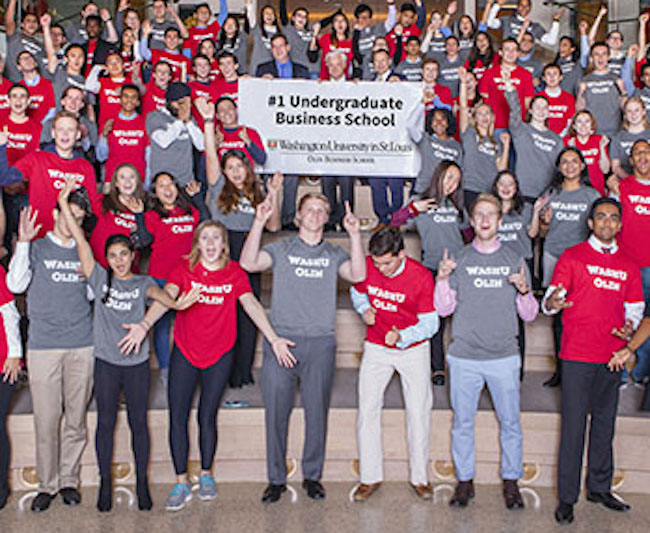The uneven economic recovery that helped to elect Donald Trump as president continued to play out in business education in 2016, with still more parents encouraging their children to major in business for better job prospects. Many of the best undergraduate business schools again increased their enrollments, and some set new limits on the number of students they could accommodate in their classrooms.
Our most popular stories on Poets&QuantsforUndergrads.com underscored worries about employment for newly graduated college students. Five of the top ten stories had to do with pay, placement and the best schools that feed world-class corporations where undergrads most want to work. In other words, students and parents wanted to know where they could follow the money, to use that popular phrase first uttered by ”Deep Throat,” the anonymous source quoted by Bob Woodward and Carl Bernstein in their book ”All the President’s Men.”
Not surprisingly, the hottest story of the year was our debut ranking of the top 50 undergraduate business schools. Even though the list was only published in early December, more than 100,000 readers have flocked to it, underscoring both the popularity of such rankings along with the hunger for more third-party analysis of the best undergraduate experiences.
Here’s the Top 10 stories of the year:

Washington Universtiy’s Olin School of Business tops the debut ranking of undergraduate business schools by Poets&Quants
1) Poets&Quants’ Best Undergraduate Business Programs Of 2016
When we began planning our first proprietary ranking of undergraduate business programs, we were intent on creating a fair and reasonable way to assess the quality of undergraduate business programs. So we put equal weight in our ranking on incoming student quality, alumni assessment of the academic and extracurricular experience, and outcomes in the form of internships, full-time job offers, and starting pay and bonus.
The result is what we believe to be the most definitive ranking undergraduate business programs ever published. As many know, Bloomberg Businessweek this year got out of ranking business for undergraduates. U.S. News’ annual ranking is merely a subset of its overall lists that based solely on the opinions of deans and senior faculty members who can barely assess in any candid way their own institutions. Many other web-type rankings are entirely bogus, with vague methodologies, meant only to serve as click bait.
In this inaugrual outing, Poets&Quants ranked 50 extraordinary schools, a select group of institutions that make up the top seventh percentile of all accredited undergraduate business experiences. The list includes publics and privates, two- and four-year business programs, schools with highly demanding academics and those that even teach business etiquette. Some of these undergraduate programs boast admissions standards that are tougher than Harvard Business School, which does not have an undergraduate program. Some can lay claim to having world class teaching faculties, completely dedicated to their students in every way. All are producing well-rounded and highly sought-after graduates by the world’s most admired employers.
Our five big winners? Washington University’s Olin School of Business, Notre Dame University’s Mendoza School of Business, the University of Pennsylvania’s Wharton School, Georgetown University’s McDonough School of Business, and the University of California-Berkeley’s Haas School of Business.
2) The Top Feeder Schools to Google, Goldman Sachs and More
There’s little question that there are certain prestigious colleges that tend to feed young talent to world-class, brand name companies that make headlines on a regular basis. Getting a diploma from one of these institutions,, considerably increase your odds of success at working at a Google or Apple, a Goldman Sachs or JP Morgan Chase, or a MckInsey or Bain.
Alphabet, the new parent company for Google, may employ more than 62,000 people, but they only hire not much more than 4,000 candidates a year—and that comes out of a pool of 2.5 to 3.5 million applications each year. Most of the elite organizations in the world may not have those kind of employment odds, but almost all of them are highly selective when it comes to offering full-time jobs to young people.
One thing’s for sure. There are certain programs that appeal to specific employers. It might be that a particular curriculum (and outside activities) aligns with company needs. A program may carry a track record for graduating successful employees into a company’s ranks. While high-end companies are staunch meritocracies in recruiting, alumni affiliations can tip the scales (note that Goldman Sachs’ CEO, two vice chairmen, and general counsel all hold degrees from Harvard).
We dove into the research to come up with this killer list of schools, and it turned out to be our most popular story of the year after our rankings bonanza.













Questions about this article? Email us or leave a comment below.